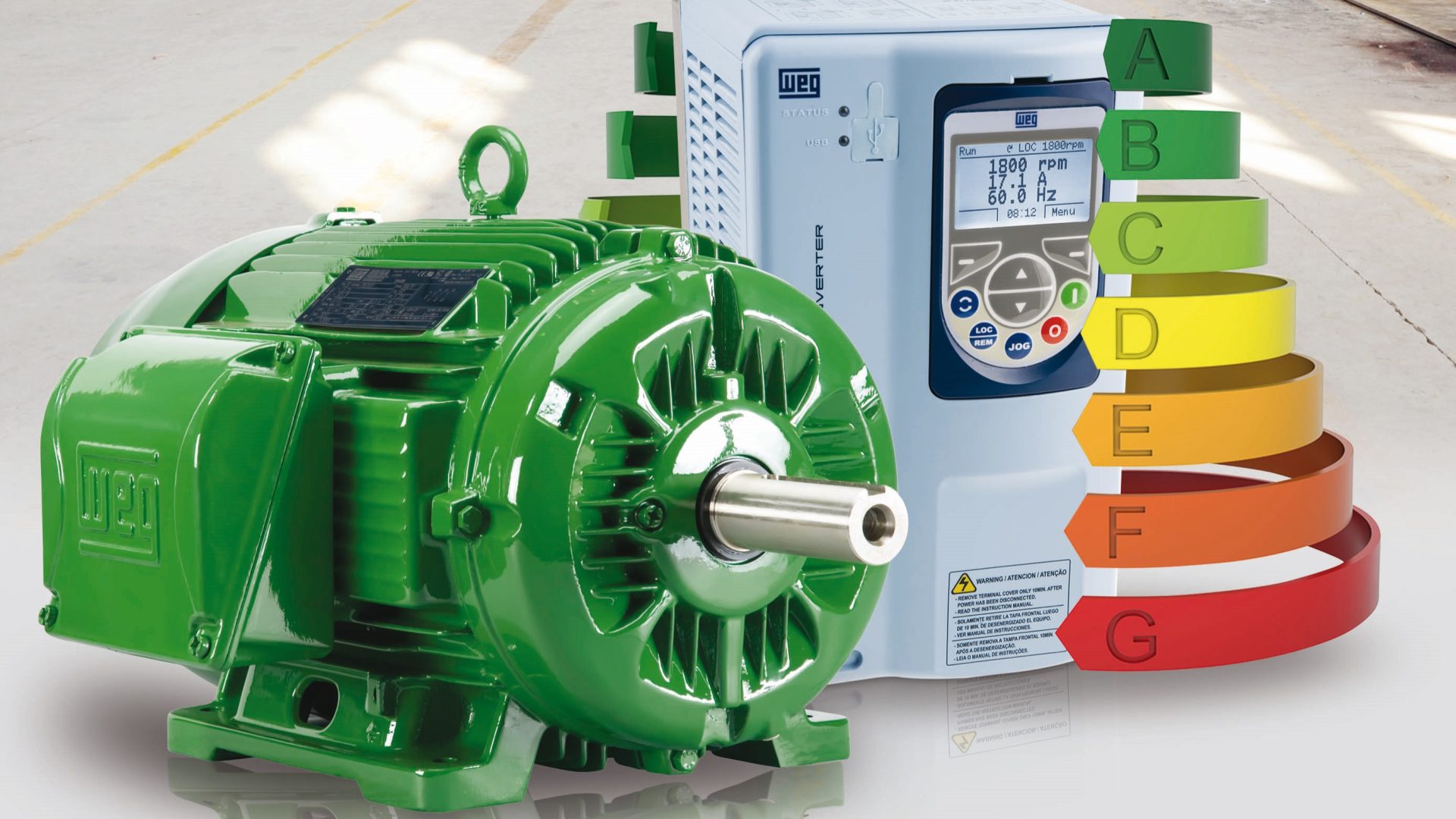With the next set of changes to the ecodesign legislation for electric motors looming, WEG, a leader in electric motor technology, has published an infographic to inform manufacturers of the changes.
The new legislation takes effect on 1 July, 2023 and aims to reduce the environmental impact of electric motors and variable speed drives (VSDs) by defining higher standards for efficiency.
Building on regulation 2019/1781, which was last updated on 1 July, 2021, this year’s update expands the scope of motors covered by the regulation. To explain the changes in the legislation, WEG’s comprehensive infographic outlines the obligations for manufacturers of motors and drives, the technical scope of the regulation itself and what end users need to know.
The document covers the Minimum Energy Performance Standard (MEPS), an efficiency scoring system introduced by the EU Commission Regulation, as well as the minimum efficiency required for electric motors and VSDs.
Marek Lukaszczyk, Europe and Middle East marketing manager at WEG explained the infographic’s purpose: “The forthcoming update to the ecodesign requirements is excellent news for the region’s efficiency goals — but it can be confusing for the end user. The new infographic will provide clear, concise information on what the changes involve.
“Among the changes is a new requirement for product information for all motors and drives. Moving forward, it will be mandatory for manufacturers to provide additional information on efficiency levels of motors and drives at different speeds, loads and torques. WEG has long provided this information — the company’s ethos is driving sustainability and efficiency — but we encourage anyone that is unsure about the requirements to come to us for guidance.”
The free to download infographic also provides guidance on pieces of equipment that, following this year’s update, will be covered by the regulation for the first time. It also provides information on specific motor types and their required efficiency levels.
The legislation comes at a time when industry is experiencing soaring energy costs. Lukaszczyk believes this is an opportunity for end users to upgrade their equipment for more efficient options.
“By upgrading motors and drives now, buyers can not only make their operation more sustainable ahead of the regulatory changes, but also reap the long-term financial benefits of the increased efficiency,” he explained. “Energy makes up a significant portion of the total cost of a motor throughout its lifecycle, so investing in a more efficient motor or drive now is a more cost-effective option.
“The regulatory changes also have consequences for original equipment manufacturers (OEMs) and machine builders. When producing equipment, it is imperative that the machine’s efficiency will stand the test of time — and ensuring the motor and drive meets a high standard should be a no brainer.”



